Biomedical engineering
Are you an engineering student interested in medical technology and life sciences? Are you intrigued by the boundaries of what's possible when different areas of science intersect? Do you want to use your engineering knowledge to improve healthcare?
A Biomedical Engineer is trained to understand body functions and to find solutions between technology and problems in the medical field. Prostheses from biologically inert materials that can replace knees, hips or shoulders. Imaging techniques that can track tumour growth and be used for radiation therapy. Electrocardiography systems that can track heart function and defibrillators that can intervene when the heart fails. All biomedical engineered solutions to common health problems.
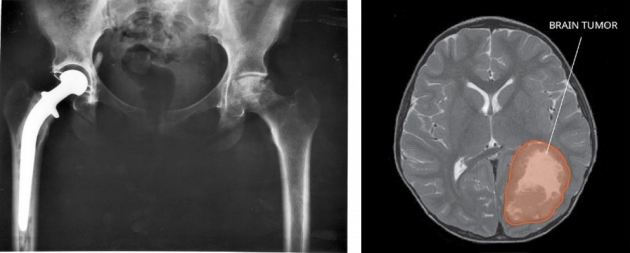
But it doesn't stop there. Medical knowledge changes and technologies need to adapt. With an ever growing amount of people, biomedical technologies need to become even more efficient. Taking into consideration ethical and economical aspects at the same time. How will the hospital of the future look like? Which place will technology take in hte future of health care? How can biomedical engineering help in prevention of illnesses? As a biomedical engineer you step into a world that is rapidly evolving.
Why study Biomedical Engineering at VUB?
The interuniversity collaboration between Vrije Universiteit Brussels and UGent offers a study program to train the biomedical engineer of tomorrow. There are several specialisation tracks from biomaterials, neuroscience, biomedical devices to biomedical imaging (see programme). With an extra track for those who want to become an expert in medical radiation physics.
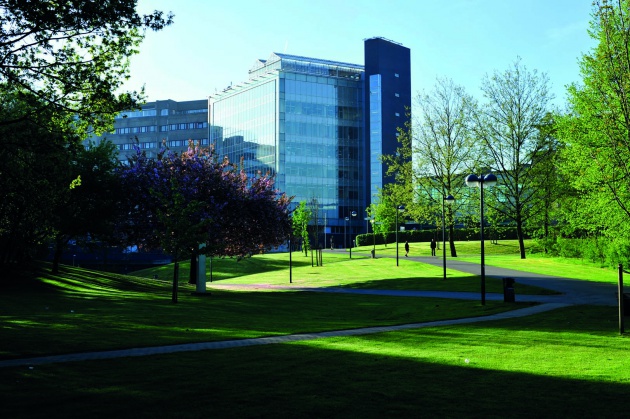
Vrije Universiteit Brussel offers classes in smaller student groups. This guarantees that students can really interact with professors and teaching assistants. A personal approach which we are very proud of. On top of this the VUB has a very cosy green campus, where a lot of student activities take place and where you can find a fitness and swimming pool. If you go out of the campus, you are immediately in the heart of Europe, surrounded by a lot of (multi) cultural activities. Brussels is our capital and we are proud of its identity!
Want to know more about studying at the Faculty of Engineering?
Join our online infosessions for international studentsAny questions?
Don’t hesitate to write us an email. We’d be happy to help you on your way!
Contact us
Public info on the quality of the programme
Information on the educational quality of each programme is public, e.g. describing its strengths and actions. For this interuniversity programme, this information is provided by the partner institution.
Read about it here
Educational Quality
Transparency is key. Here at VUB we put great care and effort in the quality of our education. Find out more on how we go about it.
More on Quality Assurance at VUB
Outline Programme
The multidisciplinary programme of the Master of Science in Biomedical Engineering provides a comprehensive overview of the different areas essential in biomedical engineering. The programme involves relevant courses regarding medical technology and health care, while also incorporating the economical and ethical aspects of the field.
The programme is divided in 3 main parts:
Compulsory courses
The 66 ECTS of compulsory courses provide students with fundamental and specialized knowledge in the field of biomedical engineering.
Elective courses
Over both years of the programme, students can choose 30 ECTs from an extensive list of elective courses taught at our three collaborating institutes (VUB, UGent and ULB) according to their personal interests. The electives are divided into specialized modules, as described below. Courses can be freely chosen from one or from different modules.
Master thesis
In the second year of the Master programme, a Master thesis will be conducted for 24 ECTS. For more information regarding the thesis, click here
Study credits
ECTS (European Credit Transfer System): 1 credit represents 25-30 hours of study activity

Compulsory courses
Overview of compulsory courses

Elective Courses
Overview of elective modules
This module provides in-depth know-how and expertise in radiation physics, medical doses which are used for patient diagnosis and therapeutic treatment, especially in the field of oncology. The courses with an equivalent of 24 ECTS in this module are compulsory to students aiming at the acquisition of a certificate of ‘Expert in Medical Radiation Physics’.
Measurement Techniques in Nuclear Science (3 ECT)
Nuclear Physics (3 ECT)
Technology of Radiotherapy (3 ECT)
Medical Dosimetry (3 ECT)
Radiologic Techniques (3 ECT)
Radioprotection and Regulations (3 ECT)
Radiochemistry (3 ECT)
Radiobiology and Radiopathology (3 ECT)
Additional to these compulsory courses for the certificate as mentioned above, the following elective courses in this domain are also offered:
Nuclear reactors and cyclotrons (3 ECTS)
In this module, the focus lies on extensive knowledge on image and signal processing, especially in the field of neuroscience. It also provides expertise in medical technologies for the development of therapies for the brain and nervous system.
Nuclear Magnetic Resonance Imaging Technology (3 ECT)
Neuro-physiological Signal Processing and Network Analysis (4 ECT)
Translational Neuroscience (3 ECT)
Neural Interfaces, Neuromodulation and Minimally Invasive Neurotechnology (3 ECT)
Auditory Computation, Modelling and Devices (3 ECT)
Advanced Image and Signal Processing (3 ECT)
Contrast Agents and Biomarkers for Imaging and Therapy (3 ECT)
For those interested in the mechanical and chemical aspects of biomaterials and their applications in medical technology, as well as computational mechanical models, this module provides the necessary courses.
Computational Fluid Dynamics (6 ECT)
From Medical Image to Computer Model (6 ECT)
Computational Biomechanics (6 ECT)
Tissue Engineering (6 ECT)
Surface activation and modification techniques (3 ECT)
Physics and Chemistry of Nanostructures (6 ECT)
Electronics and optics are essential in many medical devices. This module provides insight and know-how in the physical principles of these devices, and trains the student in the manufacturing of innovative, affordable and miniaturized medical technologies and instruments.
Microphotonics [ENG/NL] (6 ECT)
Biophotonics (4 ECT)
Sensors and Microsystem Electronics (6 ECT)
Photonics [NL] (6 ECT)
Micro and Nanobiotechnology (3 ECT)
Control of Drug-delivery Systems (4 ECT)
Biomedical Devices: Sensors, Stimulators and Drug Delivery Systems [ENG/NL] (4 ECT)
Learning outcomes
Learning outcomes describe the intended knowledge and understanding, skills and attitudes that you must master after completing your studies. Do you want to know more about the specific learning outcomes of this programme? Click here for more information.
Master Thesis
The master thesis topic is most often situated in the scientific fields of the research groups within the department of Electronics and Informatics (ETRO) and UZ Brussel hospital, although collaborations with other research groups are possible. The research groups provide an online list of potential topics (associated to promotors). During the first year you will also attend a specific event where all master thesis topics will be presented.
The student is fully responsible for the master thesis project, of course under close guidance of the academic staff. There are various important facets to be addressed: a thorough examination of the scientific context of the research problem, a positioning of the problem versus the current state of the art, a clear formulation of the scope and the aim of the project, the setup and follow-up of a planning, the execution of the scientific program, and the preparation of a manuscript describing the project’s output. Finally, the thesis needs to be presented in front of a jury, consisting of the promotor, other professors and potentially external members.
Thesis topics
Department of Electronics and Informatics (ETRO) topics here
Internships
Students can opt to take up a national or international internship (of 6 ECTS – 22 working days), which will preferably take place during the summer (July-August) between the first and second year, to avoid delaying study progress. Registration for the internship is possible, provided that the student does not have a combined bachelor-master enrolment and has already attained 45 ECTS of the master's programme (exemptions included).
If you want to register for an internship, the steps are described in what follows:
- Firstly, make sure that you fulfil the criteria; namely, you do not have a combined bachelor-master enrolment and have already attained 45 ECTS of the master's programme (exemptions included)
- Secondly, select a Belgium-based or international company/hospital and an academic supervisor from the VUB and get in touch with them. The programme has partnerships with various companies and hospitals, including UZ Brussel and KCMC (Tanzania) hospitals, … During the first year, you will also attend Biomedical Engineering events where you will be able to interact with companies and discuss about their internships. You can alternatively look at the Faculty of Engineering dedicated webpage for more information and available internship openings by clicking here.
- Third, provided you have a positive response by both company/hospital and supervisor, then fill in the form.
The academic coordinator for the internships in the BME programme is Prof. Johan Stiens (jstiens@etrovub.be)
Previous Master Theses
Some examples of previous Master Theses finished at our university
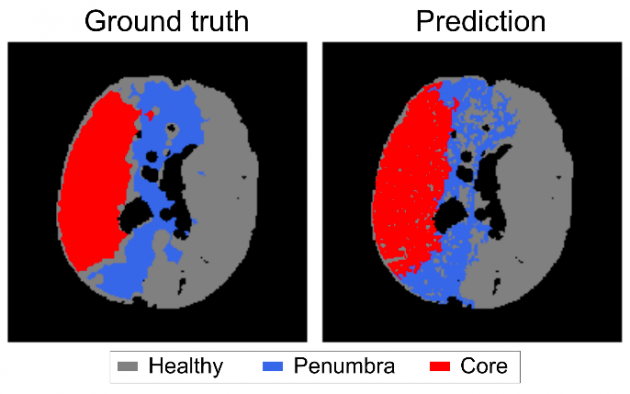
Signal and Image Processing
Computer-aided diagnosis of ischemia and infarction for the treatment of acute ischemic stroke
This thesis focused on the treatment of patients suspected of suffering an acute ischemic stroke. This is a medical emergency in which there is a blockage in one of the brain vessels, reducing the blood flow to a certain region. Time is essential here because the longer it takes to restore the perfusion, the more brain tissue can suffer irreparable damage. Machine learning was used to automatically detect the regions of reduced perfusion and give an estimation of the severity. The thesis proved that the current complex procedure could be optimised with the use of machine learning, offering the patients a chance of a better clinical outcome.
-Student: Ine Dirks. Promotor: Jef Vandermeulebroucke
Radiology
Quantification of regional and temporal lung ventilation properties in xenon-enhanced dual-energy CT imaging
The aim of this Master Thesis is to assess the spatial and temporal properties of dual energy CT to obtain lung ventilation information using Xe gas as a contrast agent. To do so, 6 rabbits were imaged in a normal and in a broncho-constricted state. Spatially, a Xe concentration increase was detected in the images both qualitatively and quantitatively (1.06 ± 0.45 mg Xe/ml). Temporally, the wash-out trend of the acquired images was compared to the wash-out trend of a reference mass spectrometer and a correlation was found (R2=0.93; p-value<0.05). Moreover, it was found that with Xe-enhanced dual-energy CT one can distinguish qualitatively and quantitatively the normal from the broncho- constricted state, noticing broncho-constricted regions with lower Xe concentrations and with a mean difference of 0.23 mg Xe/ml between the normal and the broncho-constricted state. This positions xenon-enhanced dual-energy CT as a promising technique to acquire spatial and dynamical data of ventilation, as well as to detect broncho-constriction.
- Student: Eric Invers Rubio. Promotors: Prof. Nico Buls and Dr. Sc. Gert Van Gompel

Biomedical devices
Robustness improvement of PPG based multi-modal physiological sensing
Photoplethysmography (PPG) is a non-invasive technique that by means of light interaction with the skin, allows extracting physiological parameters such as heart rate or blood oxygen saturation, among others. Due to factors such as body location, movement artifacts, contact pressure or temperature, the PPG signal gets easily distorted. This distortion limits the use of this technique for continuous monitoring. In this thesis, it was developed novel PPG sensor structures that aim to improve the acquisition robustness so that photoplethysmography can be used for continuous multi-modal physiological sensing.
-student: Angel Sole Morillo, Promotor: Johan Stiens
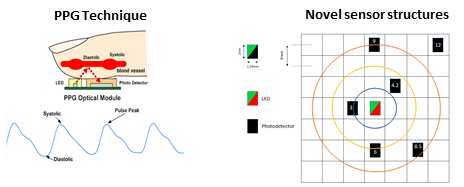
First steps on the job market
With a Master of Biomedical Engineering, the student has ample possibilities of finding a job in Flanders, Belgium, Europe or around the world inindustry, hospitals, health care, universities and research institutes, in government positions and many more.
The biomedical engineer is versatile, multi-disciplinary, and thus employable in a variety of positions:
- PhD-student at a university or at a large industry R&D-department.
- Product manager or project leader in an (R&D-) industry.
- Medical physics engineer in a hospital.
- Government/public health.
- Consultancy in a wide range of functions, from product design to safety regulations.
- Notified bodies, Regulatory Affairs Managers, screening new products for a CE-mark, patent offices...
- Health Insurance, improving health care and controlling costs.
- Any job requiring the traditional analytical and organizational skills of the academically trained engineer (general consultancy jobs, top functions in administration, banking sector..
Companies
A Biomedical Engineer can work for a wide range of companies. Get to know the job market:
Careercenter
The VUB helps you to make your first step in the job market with workshops, networking events, job fairs, tips ‘n tricks for job interviews. All an ambitious student needs!
First step on the market
Phd?
If you want to continue your academic career, you can apply for a PhD position at the Vrije Universiteit Brussel. All you need is a promoter, research subject and sufficient funding. Are you up for this challenge?
More info
Working as a biomedical engineer
The biomedical engineer: All-round expertise
In the VUB’s master’s course, you’ll acquire knowledge and skills from all fields of biomedical engineering, so that when you finish the programme, you can work as a generalist or specialist in one particular field. Graduated students are trained in the fundamentals of current biomedical engineering and have a thorough knowledge of the basic concepts, along with an overview of the main applications used in various fields of biomedical engineering: medical imaging, medical signal processing, medical physics, medical device technology, tissue engineering, biomaterials and more. Alongside this knowledge, you’ll acquire the necessary research skills that will allow you to independently analyse and solve problems, with an emphasis on permanent learning in this continuously evolving domain.
Putting theory into practice
Why wait until you graduate for a glimpse of the industrial and social environment you’re being trained to work in? If you opt for an internship, you’ll spend around 40 days in a company or hospital locally or internationally. You’ll be able to apply the knowledge you’ve acquired throughout your education while learning different aspects of the environment that might have escaped traditional education methods. The ultimate goal of this internship is to encourage critical reflection on your studies. Internships last six weeks, and represent six credits, more information here.
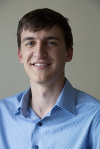
Student Testimonials
“The medical physics trajectory in the master of biomedical engineering enabled me to participate in the postgraduate to become a medical physics expert. In my opinion, the appealing side is that you can specialize in medical physics while still acquiring a strong fundamental knowledge in the biomedical engineering field. This means all of your options remain open, whether you decide to further specialize or not.“ - Matthijs Sevenois from Belgium
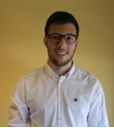
“When I applied for the Master, I was hoping to focus on the radiation branch of the Biomedical Engineering field while still gaining more knowledge on the broad sense of the field, in order not to forget and deepen in what I learned during my Bachelor. With the elective courses and the Master Thesis topic I chose, that’s exactly what I found. Thanks to the experience and expertise I gained during the Master it was not difficult to find the job I wanted and currently have: Superior Technician in Radiation Protection, where I’m involved in quality control and radiation protection services for clients like the nuclear medicine and radiotherapy departments of hospitals and other industries that use radioactive materials.” - Eric Invers Rubio
Want to know more about our alumni?
More infofollow the VUB
On LinkedInApplication Deadline
Prospective students are advised to apply as soon as possible, even if they have not yet obtained their degree. Applications can only be submitted through our website here .
There are two separate general deadlines depending on your nationality:
- Non-EEA citizens: before the 1st of April.
- EEA-citizens: before the 1st of September
Click here for further information and for information on exceptions to these general deadlines.
Enrolling in this programme
Students with an academic Bachelor (or Master) degree in engineering (university level) can enter the programme without any prerequisites, except for students with a Bachelor or Master degree in Architectural Engineering. This is also the case for students with a Master degree in bio-engineering.
Students with a Master degree in Industrial Sciences may enter the master programme via a dedicated bridging programme of 120 ECTS credits. All other students must follow an admission programme, accounting for approximately 15/18 to maximally 90 ECTS credits depending on their diploma.
Language requirements
Prospective students can provide proof of sufficient knowledge of English as language of instruction by meeting one of the following criteria. Please find here an overview of the criteria.
Tuition Fees
All Flemish universities in Belgium are subsidised by the government, which results in relatively low tuition fees.
The tuition fee consists of a fixed amount paid every year you register in the programme and a variable amount paid for each ECTS you register:
- The fixed yearly amount for EEA is 245,20 Euro, for non-EEA students is 1000 Euro.
- The variable amount is 11,7 Euro/ECTS for EEA students or 25 Euro/ECTS for non-EEA students.
Example tuition fee calculation:
- For a scholar year registration and a standard learning path of 60 ECTS, the tuition fee per year is:
For EEA students: 245,20 Euro + 11,7 Euro/credit x 60 credits = 947,20 Euro (per academic year)
For Non-EEA students: 1000 Euro/year + 25 Euro/credit x 60 credits = 2500,00 Euro (per academic year)
- The total amount that you need to pay for a two years Master programme (120 ECTS):
For EEA students: 1894,40 Euro
For Non-EEA students: 5000,00 Euro
A detailed overview of the tuition fees as well as examples can be found on: www.vub.be/en/tuition-fees
Scholarship Programmes
Priority Country Programme
Aimed at promoting exchanges of students between Belgium/Flanders and the following priority countries: Brazil, Chile, Japan, Mexico, Morocco, Russia, South Africa, Turkey and the United States of America.
http://www.studyinflanders.be/en/scholarship-programmes/priority-country-programme/
ASEM-DUO
Aims at promoting exchange of students between Belgium/Flanders and 4 countries in Asia, i.e. China, India, South Korea and Vietnam.
http://www.studyinflanders.be/en/scholarship-programmes/asem-duo/
Master Mind Scholarships
The Government of Flanders awards scholarships to outstanding students for Master programmes in Flanders and Brussels.
http://www.studyinflanders.be/en/scholarship-programmes/master-mind-scholarships/
Contact Persons
Prof. Dr. Ir. Johan Stiens – program director
http://www.etrovub.be/jstiens
Dr. Ir. Jef Vandemeulebroucke – program liaison
http://www.etrovub.be/JefVandemeulebroucke
For more details on admission requirements and application
Click hereInteresting links
General Information
- Study Guidance
https://student.vub.be/en/study-guidance#news - Language Class
http://www.cvo-bec.net/en/index_en.html - Health and well-being
https://student.vub.be/en/health-wellbeing#general-practitioners - Sports at the VUB
https://www.vub.be/en/sport - About Belgium
https://student.vub.be/en/heart-of-europe#brussels - About Cti
https://www.cti-commission.fr/
About the Programme
- Academic calendar
https://www.vub.be/en/academic-calendar - Exam schedule
https://student.vub.be/en/ir#exams
Social Life
- Meet locals and expats
https://www.meetup.com/ - Student organisations
https://student.vub.be/en/student-organisations#find-your-student-organisation
About Brussels
- How to get around
https://student.vub.be/en/mobility#moving-around - Things to do in Brussels
https://student.vub.be/en/leisure#brussel
https://student.vub.be/en/leisure#calendar